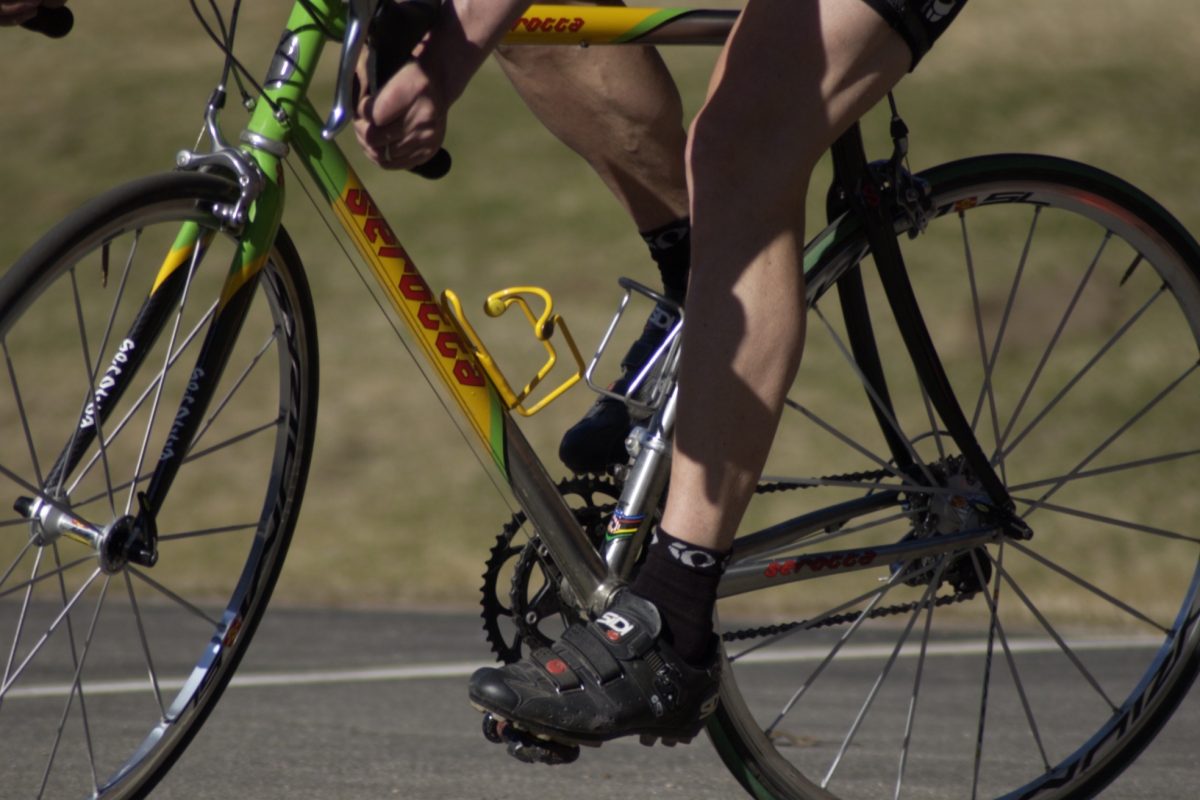
With the announcement that U.S. alpine star Lindsey Vonn will not be able to compete at the upcoming Olympics due to injuries sustained earlier this season, at least one other woman in the world of sports knows exactly what she’s going through.
In a no-notice press conference after the biathlon World Cup sprint in Oberhof, Germany, on Friday, German racer Miriam Gössner announced that she was unable to overcome the four fractured vertebrae from a bike accident in Norway in May, and was ending her quest for the Olympics.
Was Gössner as big a star as Vonn? No way. But she had very legitimate medal chances, before the accident.
“I have come to the conclusion that I will not go to Sochi, and primarily focusing on getting healthy again,” Gössner announced, before breaking down in tears.
The Garmisch native compated in the Vancouver Olympics as a cross country skier, placing 21st in the 10 k freestyle after a bad crash on the second lap, and taking part in the silver-medal winning 4 x 5 k relay. She was just 20 years old at the time.
After that she went back to biathlon, the sport she preferred but had seen no chance to make the Olympics in as the German women were so dominant at the time. 2012-13 was a breakout season for Gössner: she won World Cup competitions at three different venues, earned three more podiums, and landed ninth in the World Cup Total Score.
This was exciting not just for Gössner, but for Germany. With Magdalena Neuner’s retirement after the 2012 season as one of the greatest female biathletes of all time, and Andrea Henkel sure to retire soon, they were looking for fresh faces. Gössner provided an unexpected spark: she had always been an excellent skier, but her shooting began to come together better than anyone probably could have hoped for, given her previous results.
In particular, Germany feared what would happen to its women’s relay team, once so thoroughly dominant. They shouldn’t have: Henkel, Gössner, and company won relays in Antholz, Italy, and on the Olympic course in Sochi, Russia, last season (although they were only fifth at World Championships).
With her diminutive size, quick tempo, and blonde hair, Gössner drew comparisons to Norwegian ski star Therese Johaug. And indeed, after a lackluster biathlon World Championships in 2013 where her best finish was sixth, she headed to skiing World Championships and placed fourth in the 10 k freestyle. It was one of her only ski races of the season where she didn’t stop to shoot, and she landed just half a second off the podium and 33 seconds behind Johaug herself, who won the race.
So the Olympics were looking very bright indeed for Gössner, who could have had her pick of disciplines and, possibly, multiple sports. But then in May she was in a high-speed road bike crash while training in Norway.
German team doctor Bernd Wolfahrt said that the rehabilitation process had progressed well, and that Gössner had come farther than she probably should have expected to.
“One must again bear in mind that this was a very, very serious injury,” he said. “You have to be happy that she still can ski. This could have had a much, much worse outcome.”
But for Gössner, that’s only a little bit of consolation as her career was seeming to come together just at the perfect time. Instead, this season her top finish so far was 47th.
“In skiing, it is very, very difficult for me,” she said in the press conference. “I can’t really move. I think you can see it… it just is not working. And to be honest, when it comes to the Olympics, my goal is [winning] medals. Currently with my back, I wouldn’t be able to.”
Still 23, Gössner can instead refocus on the next Olympic cycle. Wolfahrt said that part of the reason that “it makes sense to cancel the season” is that while her back is improving, the training load she needs in order to succeed is still too large, and the rehabilitation must be handled delicately.
The two said that they may consider rejoining the World Cup in March, depending on how Gössner’s health progresses.
Chelsea Little
Chelsea Little is FasterSkier's Editor-At-Large. A former racer at Ford Sayre, Dartmouth College and the Craftsbury Green Racing Project, she is a PhD candidate in aquatic ecology in the @Altermatt_lab at Eawag, the Swiss Federal Institute of Aquatic Science and Technology in Zurich, Switzerland. You can follow her on twitter @ChelskiLittle.



